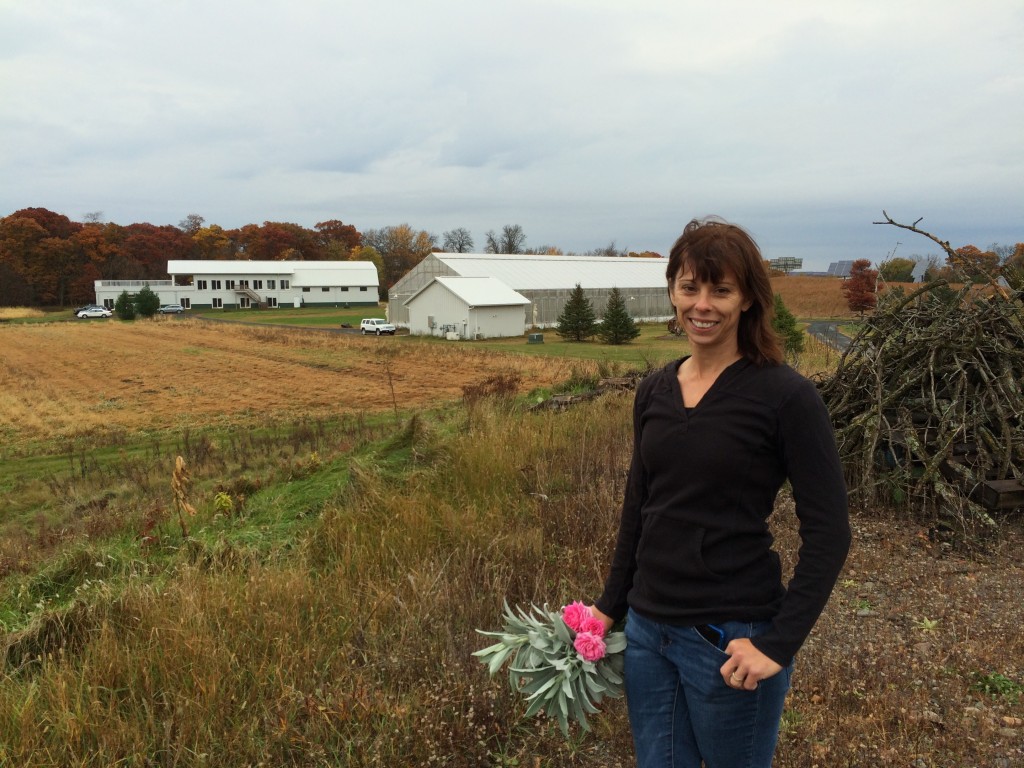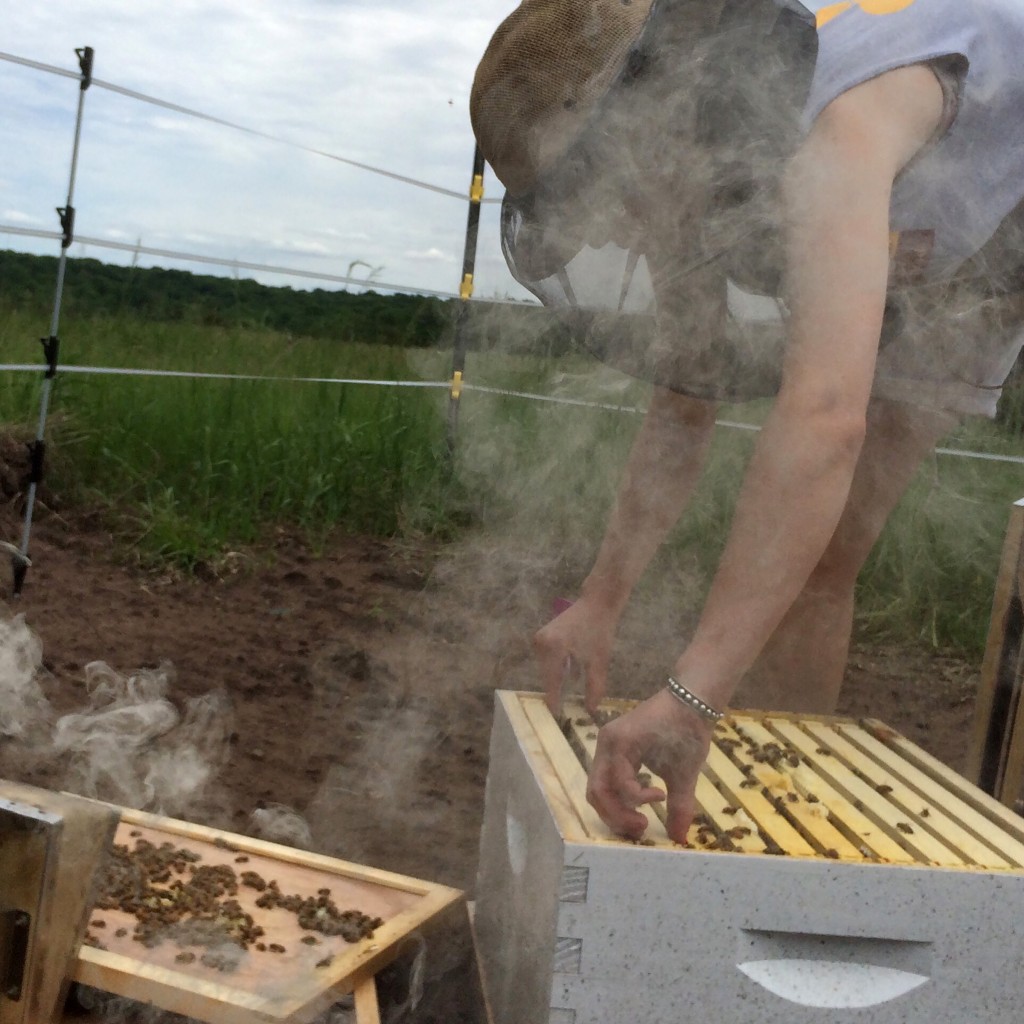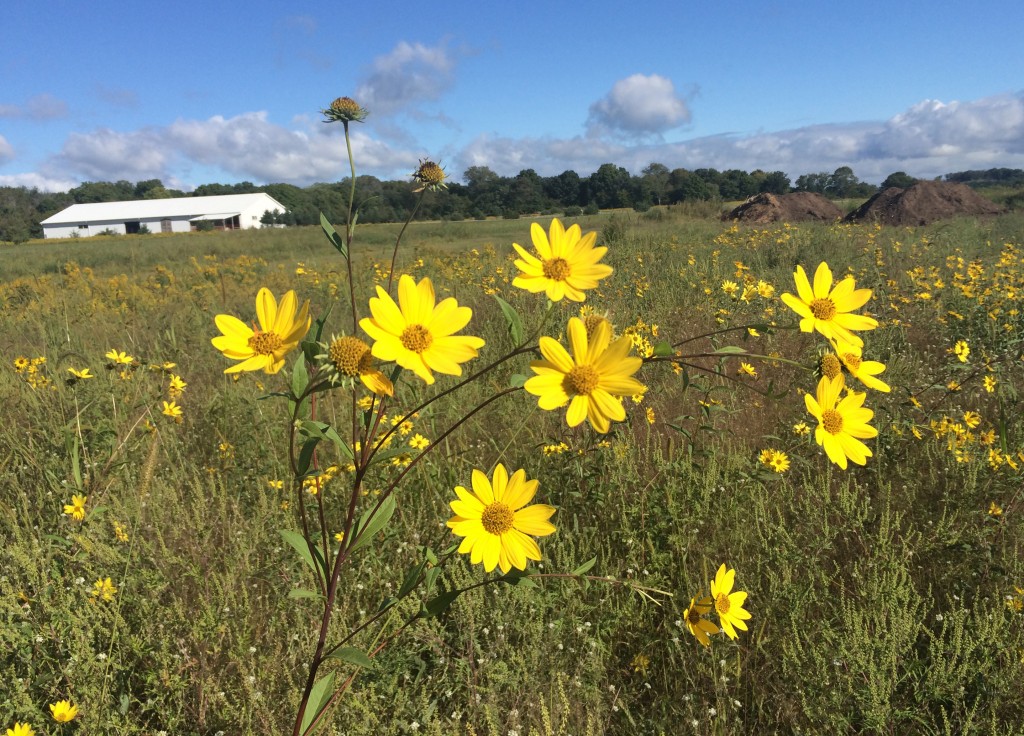U of Minnesota Bee Squad
This article originally appeared in the January/February issue of Northern Gardener.
At the University of Minnesota Bee Lab, pollinator bees are studied to better understand their role in the environment and to promote their health. The Bee Lab’s community outreach program is the Bee Squad, which helps beekeepers and the community foster healthy bee populations and pollinator landscapes through education, hands-on mentorship and research.

After she graduated from the U of M entomology department under the professorship of Dr. Marla Spivak, Bee Squad Associate Program Director Rebecca “Becky” Masterson worked outside of the scientific world of bees for 12 years. “When I came back, I was despondent over the health of bees,” she says. “The difference was frightening. But now I’m doing something to help bees or help people help bees.”
Finding Homes for Bees

The Hive to Bottle program makes bringing bees into your community easy. An individual or business pays for the bees and equipment, and a Bee Squad beekeeper manages the colony, taking care of the bees as they pollinate nearby plants. Honey that the bees don’t need for winter is harvested and given to the program participant. Currently, 200 bee colonies are part of the program. “By gathering info on these colonies, we can take the pulse of pollinator health,” says Becky. The colonies can be kept on the individual or business’ property, but the Bee Squad has a new eccentric but amazing home base for them if you can’t provide accommodations.
Horst Rechelbacher, founder of the beauty product company Aveda, owned the 300-acre Intelligent Nutrients organic farm in Osceola, Wisconsin—once a destination for retreats to the Aveda Spa. When he died, the property he used to grow and test botanicals for his products was turned over to the Horst Rechelbacher Foundation. The Bee Squad was keeping bee colonies there already for the Hive to Bottle program, and the foundation offered them a long-term home with expanded use of the property.
“We want to create a place where adults and children can learn about pollinators and their habitat while also providing habitat for bees and other pollinators,” says Becky.
A New Home
The Bee Squad partnered with the Stakman-Borlaug Center for Sustainable Plant Health to create a master site plan, where the Bee Squad will engage with the cross-disciplinary departments at the U of M, plus savvy businesses such as Prairie Restorations, to create the best possible habitat for pollinators.
“It also includes the development of the Plant Squad, which looks at plant health for pollinator health and will help gardeners choose the best plants with their particular yard in mind,” says Becky. “We want to make it easy for gardeners; if they are inspired to garden for pollinators, why don’t we just give them an easy ticket?”
Visiting the Pollinator Project
 I was lucky enough to be the first non-Bee Squad person invited to see the HMR (Horst M. Rechelbacher) Pollinator Project site. The beauty of the place is stunning. It has some of the things you might expect: a greenhouse, a large expanse of land planted with pollinator-friendly plants, and the former spa retreat building—which is being transitioned for use as a learning center. But the sculptures and ancient-looking statuary that dot the landscape, as well as the eclectic furniture and décor in the future learning center, add an element of other-worldliness, which the Bee Squad hopes to continue.
I was lucky enough to be the first non-Bee Squad person invited to see the HMR (Horst M. Rechelbacher) Pollinator Project site. The beauty of the place is stunning. It has some of the things you might expect: a greenhouse, a large expanse of land planted with pollinator-friendly plants, and the former spa retreat building—which is being transitioned for use as a learning center. But the sculptures and ancient-looking statuary that dot the landscape, as well as the eclectic furniture and décor in the future learning center, add an element of other-worldliness, which the Bee Squad hopes to continue.
“We want to add to the existing sculpture garden and art collection by displaying artists’ pollinator inspired sculpture and art,” says Becky.
Mostly, it’s a peaceful place where you can take a stroll by the pond and through a little apple orchard, then climb up a hill to a fire pit and enjoy a great view of the land. Once the Bee Squad is settled in, it’s going to be a spectacular destination. “Once you’re here, there are so many opportunities to connect with nature and pollinators,” says Becky
—Brenda Harvieux

One Comment
-
Pingback: Garden Experts Speak at Home Show - Notes from Northern GardenerNotes from Northern Gardener
Back to Blog